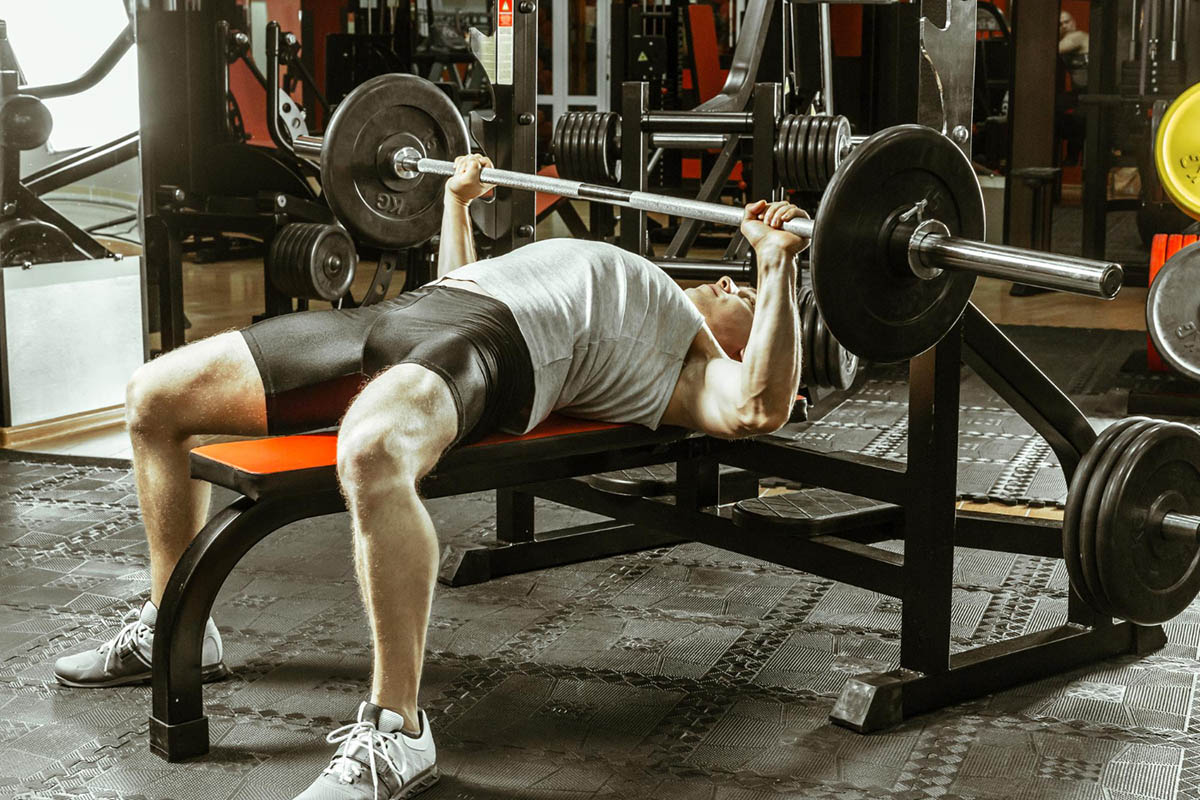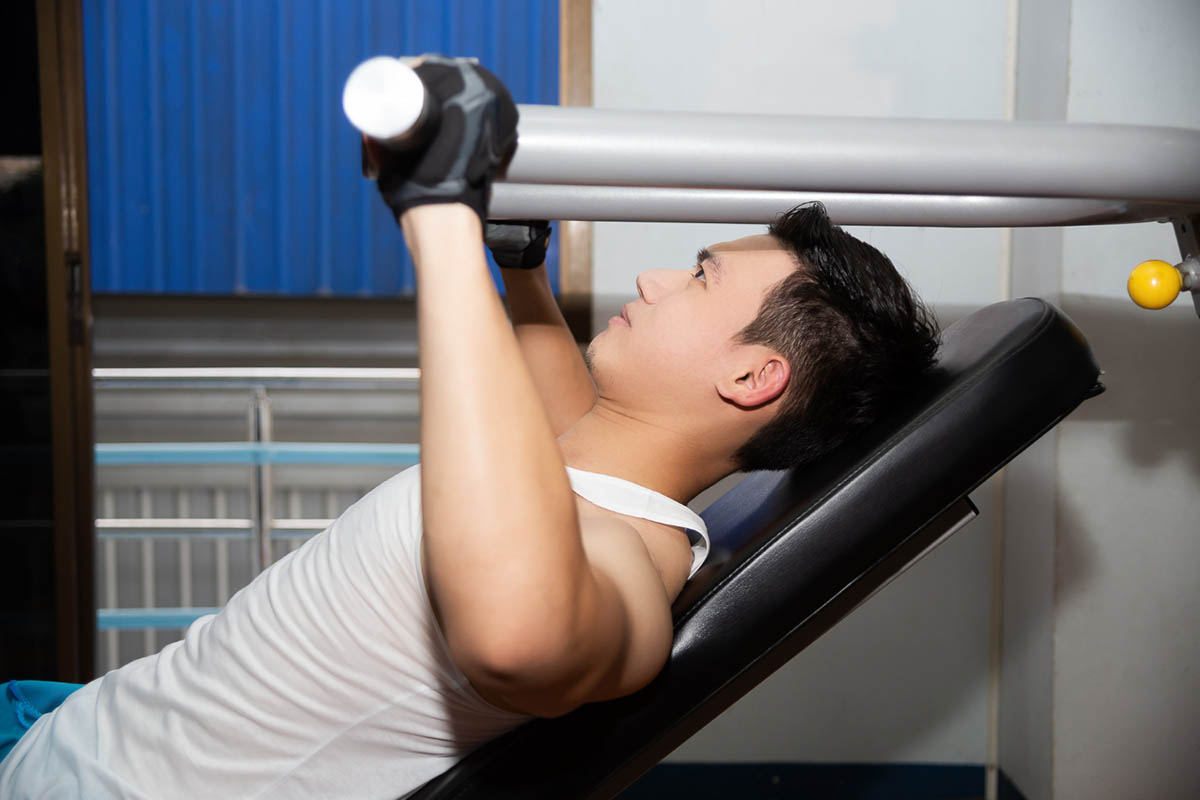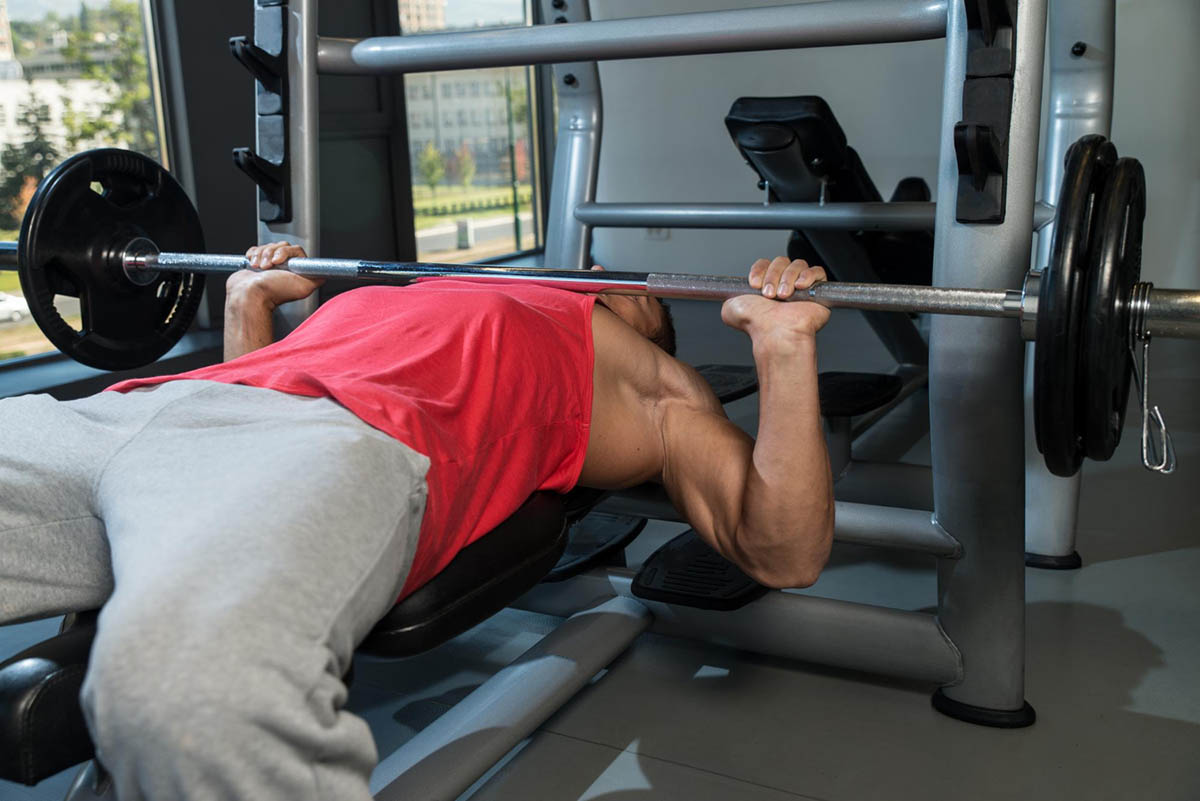If you’ve ever felt a sharp pain in your shoulder during a bench press, you’re not alone. Shoulder pain, including front shoulder pain after bench pressing, is common and affects 18-26% of adults at any given time. Whether you’re a seasoned lifter or a beginner, there’s a high chance you’ve dealt with shoulder pain or will experience it at some point from this lift. The number one reason athletes avoid or dislike bench press exercises is shoulder pain, particularly a deep, achy pain experienced in the front of the shoulder.
Addressing this issue is crucial for your long-term health and continued fitness journey. Ignoring shoulder pain can lead to more severe injuries, extended downtime, and even chronic conditions that could impede your overall quality of life and fitness goals.
Anatomy Of The Shoulder
To understand why shoulder pain occurs after bench pressing, it’s essential to have a basic grasp of the shoulder’s anatomy. The shoulder is a complex structure comprising muscles, joints, tendons, and ligaments that work in unison to allow a wide range of motion within the shoulder region.
Muscles and Joints Involved
- Rotator Cuff: This group of four muscles and their tendons stabilize the shoulder and allow for rotational movements. The rotator cuff is crucial in any overhead or pushing activity. The infraspinatus muscle is one of these critical internal rotators.
- Deltoid: This is the thick, triangular shoulder muscle responsible for lifting the arm and providing strength during pushing movements like the bench press. This muscle and the posterior and lateral deltoids play a key role in shoulder stability, particularly during chest workouts.
- Shoulder Joint (Glenohumeral Joint): A ball-and-socket joint allowing extensive mobility. However, this mobility comes at the cost of stability, making it prone to injuries such as rotator cuff tears, particularly within the glenoid cavity.
Causes of Shoulder Pain After Bench Press

Several factors can contribute to pain in shoulder after bench press during or after a bench press session:
- Poor Technique: Incorrect bench press form can place undue stress on the shoulder joint and surrounding muscles. Common mistakes include flaring the elbows too wide or lowering the barbell bench too high on the chest, leading to form issues.
- Muscle Imbalances: Overdeveloped pectoral muscles and weaker back and rotator cuff muscles can lead to shoulder pain. This imbalance forces the shoulders to compensate, leading to strain and injury. This is often caused by rotator cuff strain or muscular imbalances, mainly when focusing too much on chest exercises.
- Excessive Weight: Lifting weights that are too heavy can overburden the shoulder muscles and joints, increasing the risk of injury from excessive strain.
- Lack of Warm-Up: Skipping a proper warm-up can leave the muscles and joints unprepared for the intense activity, resulting in joint pain or injuries. Using lighter weights during warm-ups can prevent this.
- Previous Injuries: The bench press can exacerbate shoulder injuries or conditions, such as bicep tendon injuries, leading to pain and discomfort. Injuries such as biceps tendonitis and shoulder impingement are common culprits, especially when using improper grip.
Effective Strategies for Shoulder Pain Post-Bench Press
Addressing shoulder pain effectively requires a combination of immediate relief strategies and long-term preventive measures.
Rest and Recovery
Giving your shoulder time to heal is crucial. Avoid activities that exacerbate the pain and focus on rest to allow the inflammation to subside. This doesn’t mean complete inactivity; it means modifying exercises to avoid stressing the shoulder, such as incorporating incline bench variations. This approach is particularly important for those experiencing top of shoulder pain after bench press. Ensure adequate recovery to avoid further injury.
Cold and Heat Therapy
Applying ice packs to the affected area can help reduce inflammation and numb the pain. After the initial inflammation has decreased, switching to heat therapy can promote blood flow and aid healing. Increases blood flow and deep tissue massage can help in the recovery process. Using a foam roller can also aid in reducing muscle tension and improving recovery.
Physical Therapy
Engaging in physical therapy can provide targeted exercises and stretches to strengthen the shoulder muscles, improve flexibility, and correct any imbalances. A physical therapist can also help you refine your bench press technique to prevent future injuries. Incorporating external rotation exercise and rotator cuff exercises can be beneficial. They can also guide you on the correct starting position and neutral position for your lifts, ensuring you avoid internal rotation during movements. Engaging in recovery exercises can further aid in shoulder health.
Medical Interventions
In more severe cases, medical interventions such as corticosteroid injections or surgery might be necessary. Consulting with a medical professional can help determine the best course of action based on the severity of the injury. Seeking advice from a healthcare provider is crucial in these cases.
Stretching
Incorporating regular stretching into your routine can improve shoulder flexibility and reduce the risk of pain. Focus on stretches that target the rotator cuff, deltoids, and chest muscles. Using a light resistance band can assist in these stretches. This is especially important for preventing rotator cuff injuries and maintaining shoulder external rotation capabilities. Stretches focusing on neutral rotation and outward rotation can further enhance flexibility.
Get Expert Help for Your Shoulder Pain at Austin Manual Therapy Associates

At Austin Manual Therapy Associates, we specialize in diagnosing and treating shoulder pain, especially those caused by lifting injuries. Our experienced therapists will work with you to develop a personalized treatment plan that addresses your specific needs and helps you regain your fitness routine pain-free. Manual therapy techniques are a part of our treatment options.
Conclusion
Shoulder pain after bench pressing is a common issue that can significantly hinder your fitness progress. Understanding the causes and implementing effective strategies for relief and prevention is crucial for long-term shoulder health. Remember, the key is to listen to your body, maintain proper form, and seek professional help when needed. Practicing correct form and using proper bench techniques can help prevent these injuries.
FAQs
How long does it take to recover from a bench press shoulder injury?
Recovery time can vary depending on the severity of the injury. Minor strains might take a few days to a couple of weeks, while more severe injuries could require several months of rehabilitation. Proper recovery is essential for complete healing.
When should you not ignore shoulder pain?
You should not ignore shoulder pain if it is severe, persistent, or accompanied by swelling, bruising, or loss of function. These could be signs of a more severe injury that requires medical attention. Persistent shoulder pain, especially pain during bench press, should always be evaluated by a professional.
How can I tell if shoulder pain is severe?
Severe shoulder pain is typically characterized by intense discomfort, inability to move the shoulder, visible deformity, or symptoms that do not improve with rest and self-care. If you experience any of these, seeking professional evaluation is essential. Severe cases might involve joint injury or muscle tear, which can be exacerbated by lifting heavier weights than you can handle.





